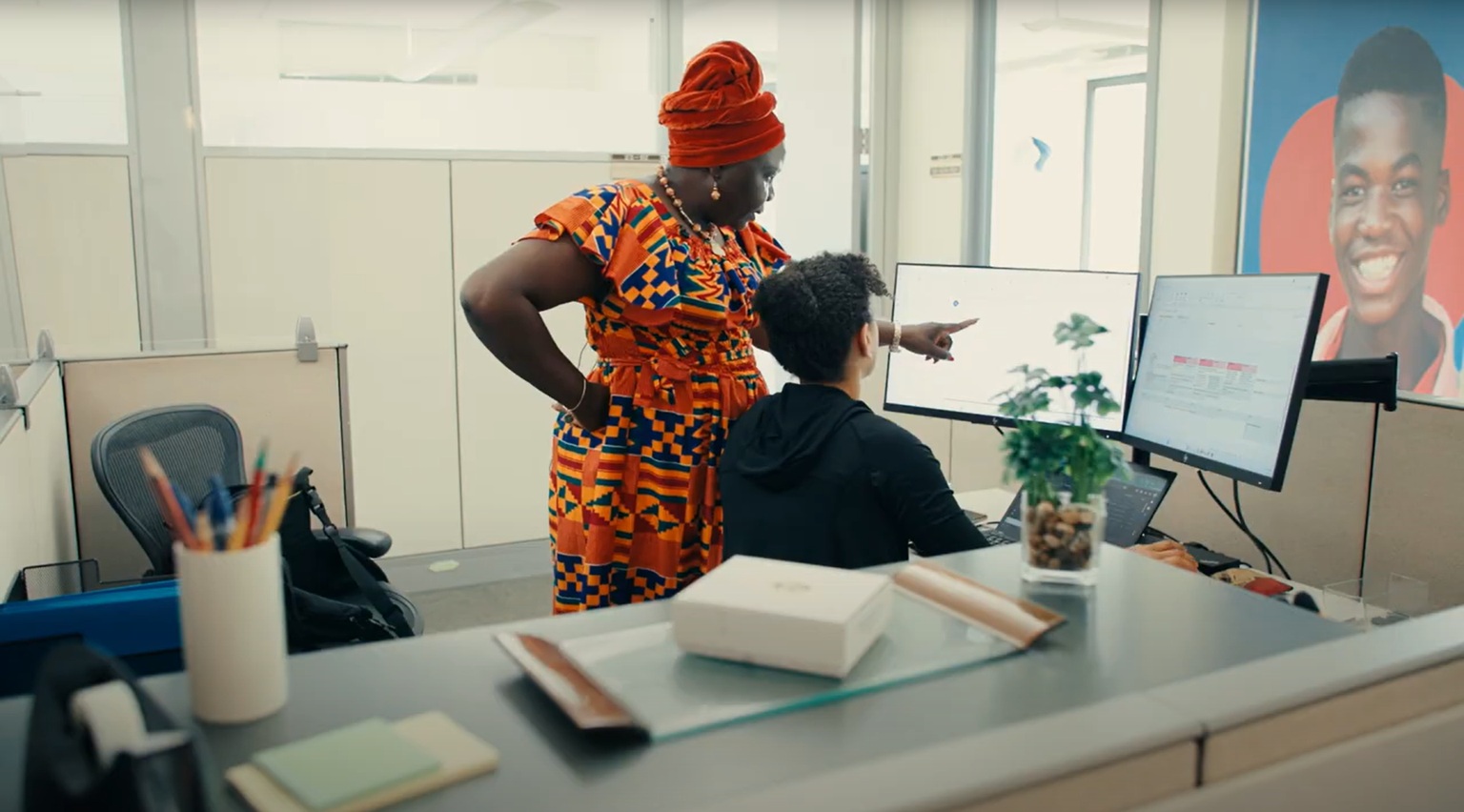The divide between the digital skills young people possess and the needs of employers is a big challenge and contributes to a high youth unemployment rate, particularly in the Global South. The SAP Educate to Employ initiative is set up as a digital pathway through Youth Agency Marketplace (YOMA), a public-private-youth ecosystem from UNICEF’s Generation Unlimited. The program aims to address this challenge and enable young people’s skills for a digital economy.
Nearly 90 percent of the 1.8 billion young people between the ages of 10 and 24 in the world today, are in low-and middle-income countries. An estimated 22 percent do not have jobs and are not in education or training.
Globally, young people are three times more likely to be unemployed than adults. Edmond Shange is one of the many young people who have faced difficulties navigating the employment market right out of high school. “In South Africa there’s not a lot of opportunities when it comes to the employment sector,” the 27-year-old shared.
Making copies of a CV or resume and going to a potential employer to drop them off costs money, something in very short supply among South Africa’s unemployed youth. Despite this, Shange says that as many as 300 young people often queue up to drop off their CVs at a potential employer. “I faced a lot of challenges trying to apply for jobs,” he said. “It’s very tough for young people like me.”
Shange is not alone. “In Africa over 70 percent of the population are young people and another 4 million join the job market every single year competing for less than half a million new jobs,” said Nadi Albino, deputy director at UNICEF’s Generation Unlimited.
Youth unemployment and the lack of digital skills are a global problem, though it’s particularly acute among those who live in the Global South. While the fast-changing global economy demands increasingly specialized expertise, many young people are not learning the skills they need to get these jobs.
The search for virtual upskilling to improve his digital skills led Shange to the Youth Agency Marketplace (YOMA), a public-private-youth ecosystem supported by UNICEF’s Generational Unlimited, which offers opportunities for young people to learn, earn, and create impact. On his pathway to employment, Shange was introduced to SAP Educate to Employ, an initiative delivered to YOMA through the implementing partner Umuzi. The curriculum for SAP Educate to Employ involves 700 hours of targeted training focused on building soft skills and technical expertise.
After completing the course, Shange feels much more confident with his skills. As a result, he has recently secured an internship as a software developer at a startup gaming company based at Wits University Tshimologong Precinct.
Whether young people are educated, trained, or employed has significant implications for their overall well-being and ability to promote future economic growth, development, and sociopolitical stability. Unfortunately, most traditional education systems do not address the emerging youth digital skills gap.
This realization was one of the driving forces behind the creation of SAP Educate to Employ.
“SAP Educate to Employ was created to support young people who are neither in education nor employment, providing them with training, certification, and guidance to access roles within the SAP ecosystem,” explained Eugene Ho who leads SAP’s global CSR flagship skilling programs targeted at youths in need. “Through its tailored curriculum, the initiative has successfully helped candidates with only high-school qualifications.”
“The SAP Educate to Employ initiative provides young people with the tools, skills, and resources that they need to get employed or to employ,” Albino added in an interview with SAP. “We have to go back to making sure that these education systems work and that they work in tandem with where the world is going.”
To meet industry needs, SAP Educate to Employ curricula has been designed for three critical roles within the SAP ecosystem: consultant associate, developer associate, and support associate. The curriculum taps into educational content from industry-leading organizations such as Coursera, Accenture, EY, and SAP Learning.
SAP CEO Christian Klein is the chair of the Generation Unlimited Board.
“The YOMA online platform alone has had over 600,000 registrations,” Albino confirmed. “A measure of success is how the ecosystem has enabled over 5 million opportunities to learn, earn, and create impact worldwide in the past two years. We are now beginning to see young people getting into jobs.”
Shange’s journey with YOMA and SAP Educate to Employ started in the living room of his grandmother’s house, a place where community has always taken center stage. “I look up to my grandmother; she has done a lot for the community,” he said. “I hope that I could do the same — help people in the tech field create more jobs for people that are in need and just be creative.”
A permanent full-time job would enable Shange to feed and look after his family, and to continue helping others in his community the same way he was helped. In his community, Shange says he is seen as something of a role model.
“I want young people to know that it’s possible [to get a job],” he said. “Keep applying and also don’t lose hope when you see something’s not working. Some things do take time, so give it your best and make sure that you see it through.”
Today, SAP extended its founding partnership with Generation Unlimited for four more years, 2026-2029, with a commitment of US$2 million.
Top image via video
UNICEF does not endorse any company, brand, organization, product or service
